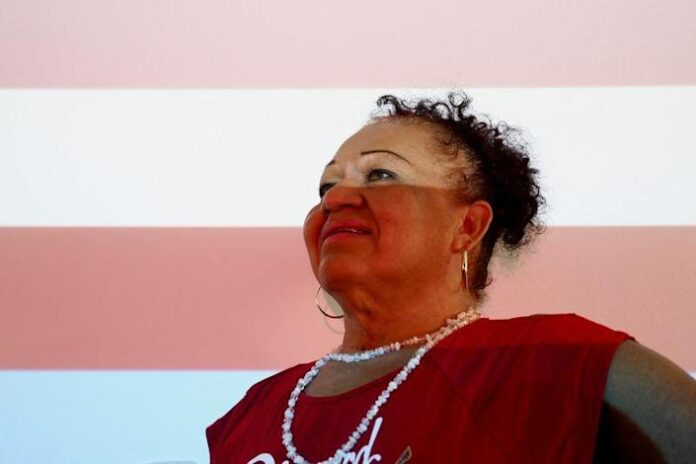
Keila Simpson, a Brazilian activist for trans people and those who identify as “transvestites,” says she was detained and denied entry to Mexico City’s international airport last Sunday because authorities objected to the discrepancy between her appearance and the name in her passport.
The 57-year-old activist and president of Brazil’s Association of Transvestites and Transsexuals (Antra) had been set to attend the 2022 World Social Forum – a gathering of LGBTQ, indigenous and environmental activists – in the Mexican capital. But Simpson says she was detained after showing a passport with her former name, which airport staff allegedly called an “incongruity” with her appearance.
In Brazil, a person can change their social name without the need to change their sex, according to a 2018 Supreme Court ruling. But the choice to do so is up to the individual. Simpson, who identifies as a transvestite and not transgender, had not changed hers.
Simpson told Reuters she had been detained for 10 hours and was not allowed access to her lawyer.
Mexico’s Migration entity said in a statement that Simpson did not state the requested information upon arrival, like where she would stay, the activities she was going to participate in and her return ticket information.
“The immigration authority acted based on the law and unrestricted respect for the human rights of migrants, regardless of their ethnic or national origin, sex, age, religion or gender identity,” it added.
But Simpson’s lawyer, Gustavo Coutinho, said she had all the required documentation with her and that other members of her delegation were granted entry with the same documents.
Mexico’s foreign ministry declined to comment.
“My documents had my original name, and that’s my identity (transvestite). The photo in my passport is new, and it is valid until 2028,” added Simpson, who lives in Brazil’s northeastern city of Salvador.
While the term “transvestite” is regarded as offensive in many Western countries, in Brazil it refers to a person whose gender identity does not fit into the two commonly used male and female ones – in contrast to transgender people who may go through a transition process.
“The only thing I have that identifies me as a transvestite is my ID,” she said. “If I change it, I would erase myself as a transvestite.”
Brazil and Mexico are the world’s deadliest countries for transgender and gender-nonconforming people, according to a survey conducted by Transgender Europe (TGEU), a network of non-profits advocating for trans rights globally.
Despite the efforts by some trans politicians to change rules and fight prejudice, Latin America remains as one of the worst regions for trans people in the world.
Source: Agencia Presentes





